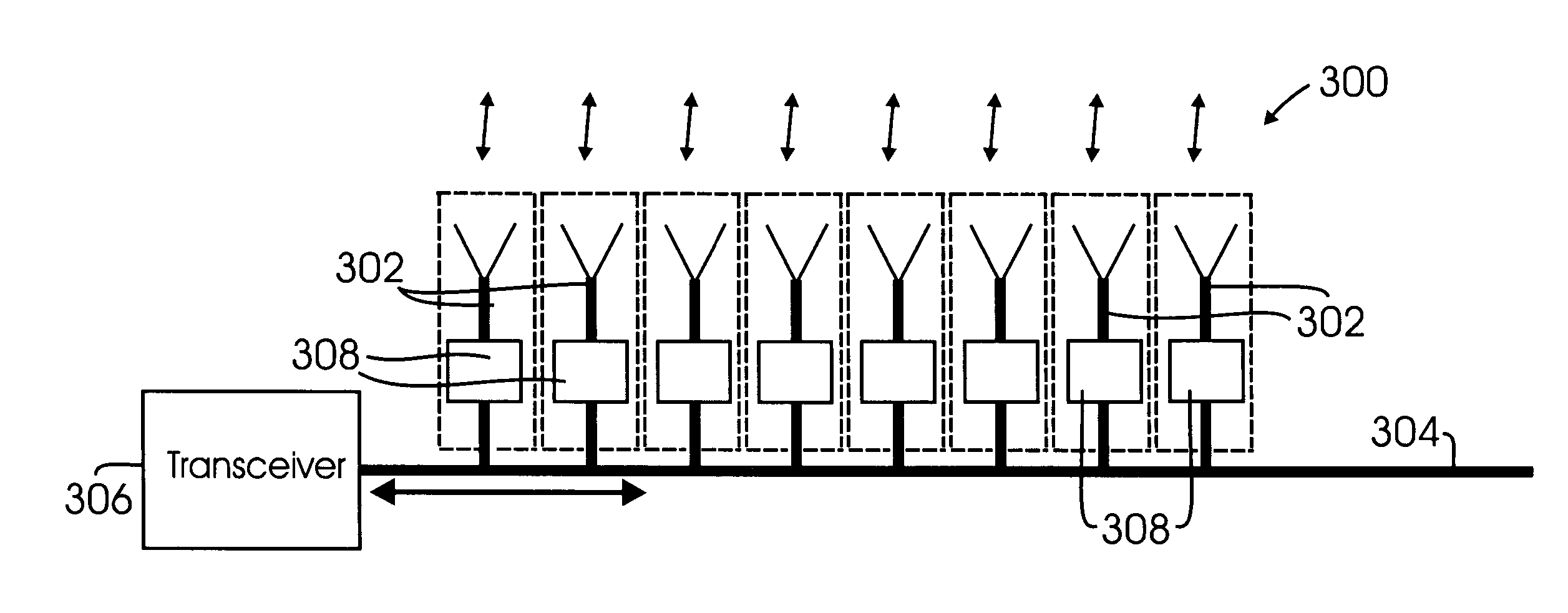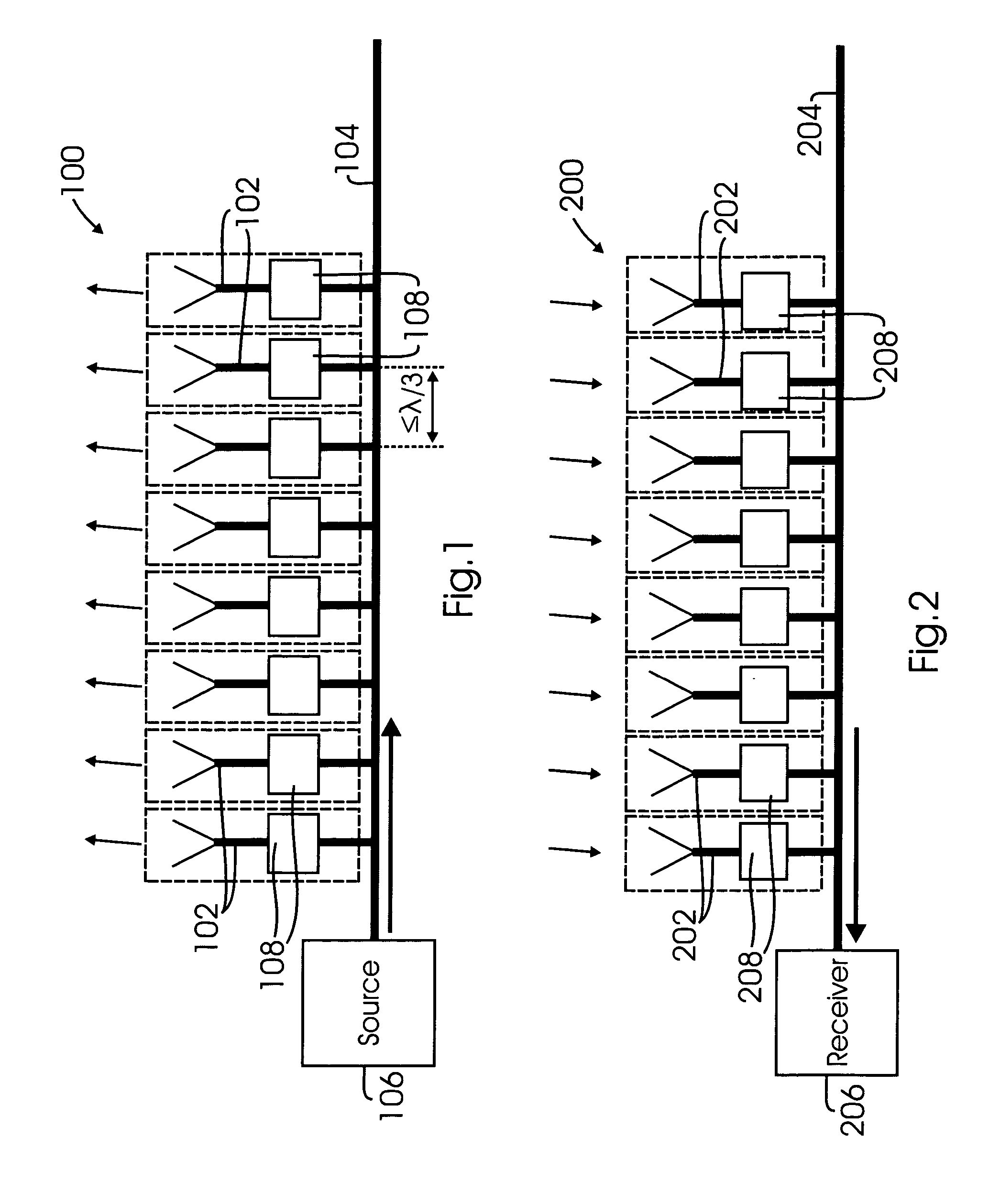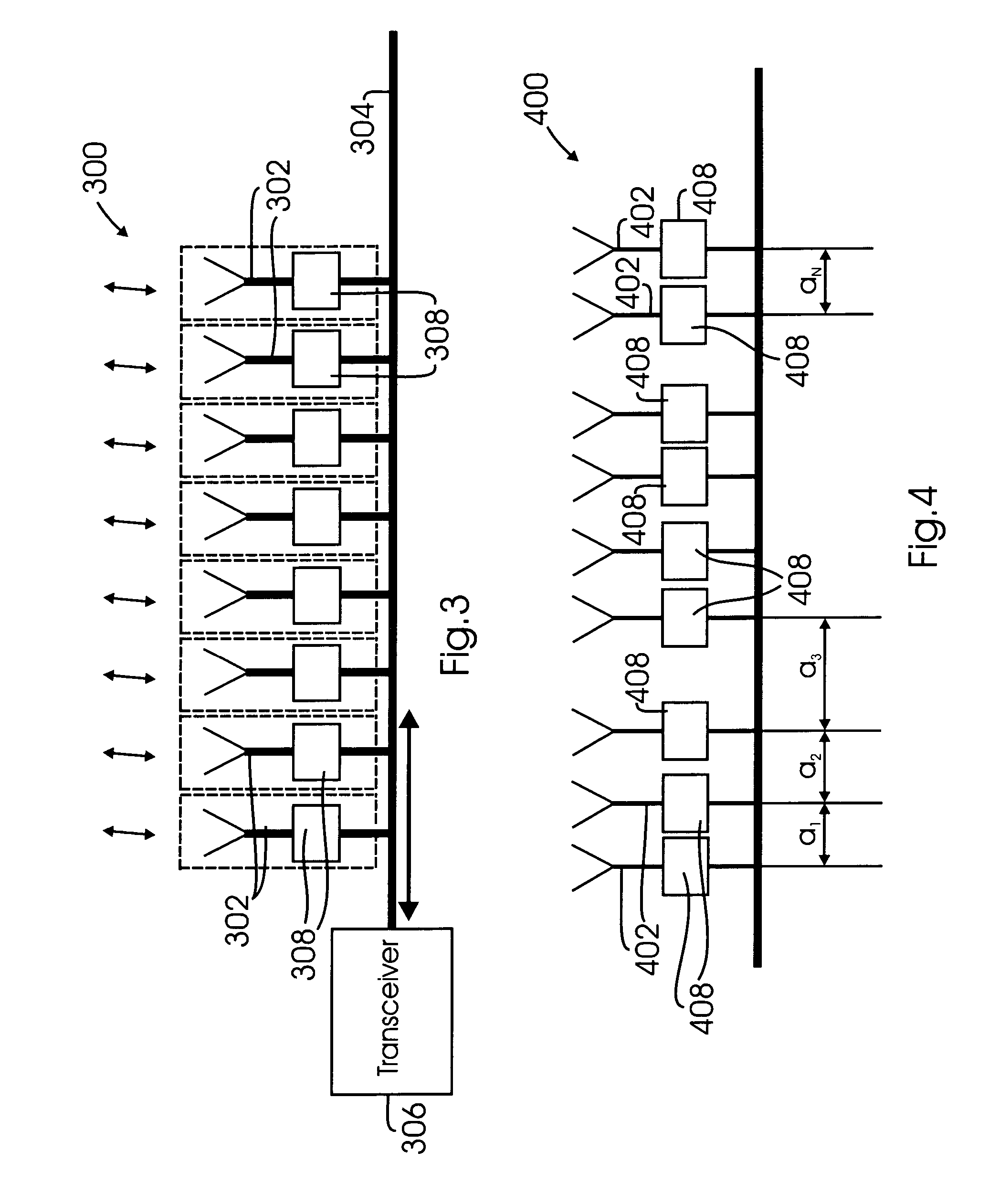Beam-forming antenna with amplitude-controlled antenna elements
a beamforming antenna and antenna element technology, applied in the field of directional antennas, can solve the problems of increasing the weight, size, cost and complexity of the antenna system, gimbal-mounted parabolic reflectors, which are relatively massive and slow, and achieve the effect of less cos
- Summary
- Abstract
- Description
- Claims
- Application Information
AI Technical Summary
Benefits of technology
Problems solved by technology
Method used
Image
Examples
Embodiment Construction
[0022]FIGS. 1, 2, and 3 respectively illustrate three configurations of a beam-forming antenna in accordance with a broad concept of the present invention. As will be described in more detail below, the beam-forming antenna in accordance with the present invention comprises at least one linear array of individual antenna elements, each of which is electromagnetically coupled to a transmission line through an amplitude controlling device, wherein the antenna elements are spaced from each other by a spacing distance that is less than or equal to one-third the wavelength, in the surrounding medium, of the electromagnetic radiation transmitted and / or received by the antenna. As shown in FIGS. 1, 2, and 3, the spacing distances between each adjacent pair of antenna elements may advantageously be equal, but as discussed below with respect to FIG. 4, these spacing distances need not be equal.
[0023]More specifically, FIG. 1 illustrates a beam-forming antenna 100 configured for transmitting ...
PUM
 Login to View More
Login to View More Abstract
Description
Claims
Application Information
 Login to View More
Login to View More - R&D
- Intellectual Property
- Life Sciences
- Materials
- Tech Scout
- Unparalleled Data Quality
- Higher Quality Content
- 60% Fewer Hallucinations
Browse by: Latest US Patents, China's latest patents, Technical Efficacy Thesaurus, Application Domain, Technology Topic, Popular Technical Reports.
© 2025 PatSnap. All rights reserved.Legal|Privacy policy|Modern Slavery Act Transparency Statement|Sitemap|About US| Contact US: help@patsnap.com



